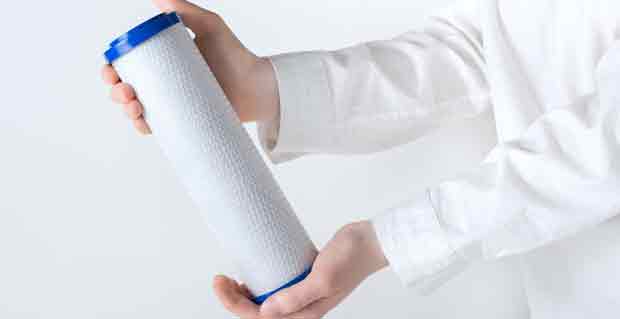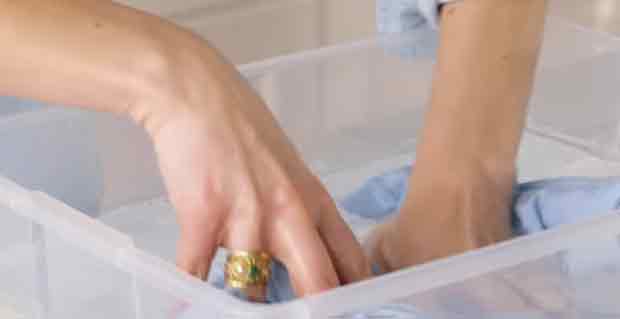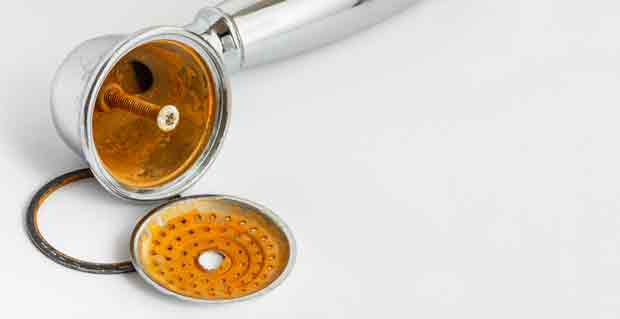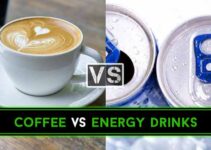Hard water can be a nuisance inside any home.
When water hardens, it transforms from being your cleaning companion to being the very thing that you need to eliminate. It’s entirely possible that you aren’t even aware of the presence of hard water in your home just yet, but even so, you’ve likely experienced its ill effects.
By learning how to soften hard water, you can make everyday processes such as cleaning so much easier, and that’s a goal worth aiming for.
Different Ways to Soften Water for Kitchen
1. Boiling the Hard Water

The first and arguably most direct method for dealing with hard water in your kitchen is to simply soften it with a little help from some heat.
Start that process by first boiling some water in a pot. Feel free to let that go for a few minutes at the very least. You should let the water cool afterwards, and this is where you will need to wait for quite some time to allow the minerals to sink to the bottom of the pot.
After that, it’s just a matter of siphoning the now softened water and separating it from the minerals.
2. Getting Some Help From an Ion Exchange Filter

A more convenient method you can use to have softened water ready to go inside your kitchen at all times involves the usage of an ion exchange filter. The aforementioned filters are designed to remove the magnesium and calcium ions that are typically present in untreated water.
You can choose to get an ion exchange filter that will fit over your faucet and soften water that is flowing through. Alternatively, there are now pitchers that also come with filters included, which is quite convenient.
How to Soften Hard Water for Laundry?
1. Use of a Non-Precipitating Water Conditioner to Wash Your Clothes

The most important thing to do here is to make sure that you get the right type of conditioner. The non-precipitating water conditioners are the ones you want because they work to break the minerals down and keep them from affecting your clothes.
Don’t forget to pay attention to what the product label says regarding usage.
Pour the conditioner into the washing machine when you’re about to start the wash cycle and do that again before beginning the rinse cycle.
2. Rely on Vinegar
You may have already heard about vinegar being used as a stain remover for clothes, but what you should also know is that it is also helpful when it comes to softening hard water.
The methodology here is simple: Just grab a towel or a piece of cloth, soak a targeted spot of it in some vinegar, and then proceed to cleaning away the hard water stain. Vinegar will help you out a lot if you need something to remove hard water stains in a pinch.
How to Use Soften Water for Your Entire Home?

- Start by checking the hardness of the water flowing inside your home. A test kit is what you’ll need to do this.
- The next step is going to involve some math as you know need to figure out how big of a softener you must have for your home. After you’ve worked out the hardness level of the water in your home by measuring the grains per gallon, multiply that by the number of gallons of water that you and your family members use daily. You now have a good idea of how many grains per gallon the softener will be able to process from one day to the next. From here, you will have to decide what kind of water softener is going to work best for your household. If you don’t want the water softener to require daily downtime, then get one that will be able to handle workloads for multiple days of even weeks based on your previous calculations.
- When it comes time to pick the right type of water softener, you are going to be introduced to a few options. As much as possible, try to look for an ion exchange softener. These softeners excel at removing the calcium and magnesium particles from the water, and that’s why they will work well for your home. The ion exchange softeners that most people choose to go with are the sodium chloride variants. They are highly effective and they should result in more gallons of softened water flowing freely inside your home. Potassium chloride water softeners are alternatives to the sodium chloride models.
- Adding a water softener to your home does not automatically translate to you having to do more work. The great thing about many water softeners is that they take care of themselves. They will refill themselves automatically, although it is worth pointing out that some models will not function while in the middle of self-maintenance.
- For many homeowners, leasing a water softener is going to be the more practical option for a few reasons. First off, by opting to lease the water softener, you are making it more affordable in the short-term. That’s what you will need if you want the water softener working in your home as soon as possible. Leasing also means that you are going to be able to save more than a few bucks on installation. Look for the most affordable leasing plans in your area to make sure you’re getting the best deal possible.
- As noted above, leasing a water softener will likely lead to you not worrying about installation. If you are going to handle the installation process yourself, then stick to the instructions included and you should be fine.
The Process of Water Softening
When you are softening water, what you are trying to accomplish first and foremost is the elimination of different minerals. As discussed earlier, calcium and magnesium are minerals found in the tap water that flows into numerous homes. The key to effective water softening then lies in being able to properly separate the minerals from the water.
To do this, people have relied on things like heat, filters, household items such as vinegar, and even other products specifically designed for the purposes of softening hard water. With the water in your home properly softened, you should find that cleaning up is going to be a faster process.
1. Why Water Needs to be Softened?
Before water reaches your home, it will travel through many networks, and along the way, it’s going to pick up a few things. These are the minerals that were discussed earlier, namely calcium and magnesium. From a health standpoint, there’s nothing inherently wrong with having those minerals in your water as they won’t really cause you any harm. However, they can contribute to making the chores you have to complete on a daily basis that much harder.
Everything from cleaning the dishes to washing your clothes becomes tougher when you are dealing with hard water.
When hard water is present, the soap molecules are unable to dissolve completely. The soap molecules then bind with the magnesium and calcium particles hanging around in the water. The result of that combination manifests itself in the form of a soap clump. These are the clumps that you’ll often find left behind after showering or washing something.
Those clumps are tougher to clean. That’s why your skin may sometimes still feel slick after washing and why clothes may feel the same way.
By softening the water being used inside your home, you are making things easier to clean and getting rid of the unsightly hard water stains.
2. The Problems of Hard Water

Doing things such as boiling the hard water, using conditioner on it, or even filtering it have proven to be effective softening methods. However, those are temporary solutions.
For the homeowners who want to be completely rid of all their hard water-related problems, what they need to have installed is a machine known simply as a water softener.
Water softeners are machines that are essentially added to the water system in your home. They work by replacing the calcium and magnesium particles in the hard water with something else. In most cases, sodium is the substance that takes the place of calcium and magnesium, although potassium has also been used in that way.
The water softener springs into action once the hard water enters its mineral tank that is full of resin. The resin attracts the calcium and magnesium particles. Once the water softener fires a brine solution through the mineral tank, the calcium and magnesium particles are displaced, and the sodium or potassium particles are the ones that end up present in the water that will now flow into your home.
The sodium ions will not create those bothersome soap clumps, meaning washing clothes and dishes should become significantly easier.
Maintaining Water Softeners is not a Complicated Process
One of the great features of the widely available water softeners is that you don’t have to actually do much of anything in terms of maintenance.
When it comes to cleaning and recharging, you can trust these machines to look out for themselves.
Some water softeners make use of a mechanical water meter. The water meter takes note of your household’s water consumption, and when it hits a certain point, it will begin to recharge. If you happen to get a model that comes equipped with two mineral tanks, then you will not have to worry about ever experiencing soft water shortage.
You’ll also find water softeners that rely on set schedules to determine when it is time for a recharge.
Other water softeners feature an automatic recharging system. For these machines, the time for recharging is determined by water use.
Evaluating the Water’s Hardness Level
The unit used to measure water hardness is known as grains per gallon or GPG.
According to Popular Mechanics, if the water’s hardness level only goes up to about 1 GPG, then it’s not actually hard. At that level, the water flowing into your home is still deemed as soft.
If the hardness level is somewhere around 3.5 to 7 GPG, then the water can be described as moderately hard, per the US Geological Survey. Water that measures at 7.1 to 10.5 GPG is considered hard, and anything above that is described as very hard.
Do You Need to Avoid Hard Water?
If you’re worried about the impact hard water could have on your health, there’s no need to be.
While the calcium and magnesium particles may contribute to making your dishes and clothes tougher to wash, your body will not be adversely affected by them being in your tap water.
Water infused with either sodium or potassium may not be good for certain individuals with dietary restrictions however.
How to soften hard water may seem like a silly question at first, but as you’ve seen, there are real benefits to doing so and the process itself is not overly complicated.
If you are simply fed up with having to deal with the disadvantages of using hard water, then now you know exactly what you have to do.



